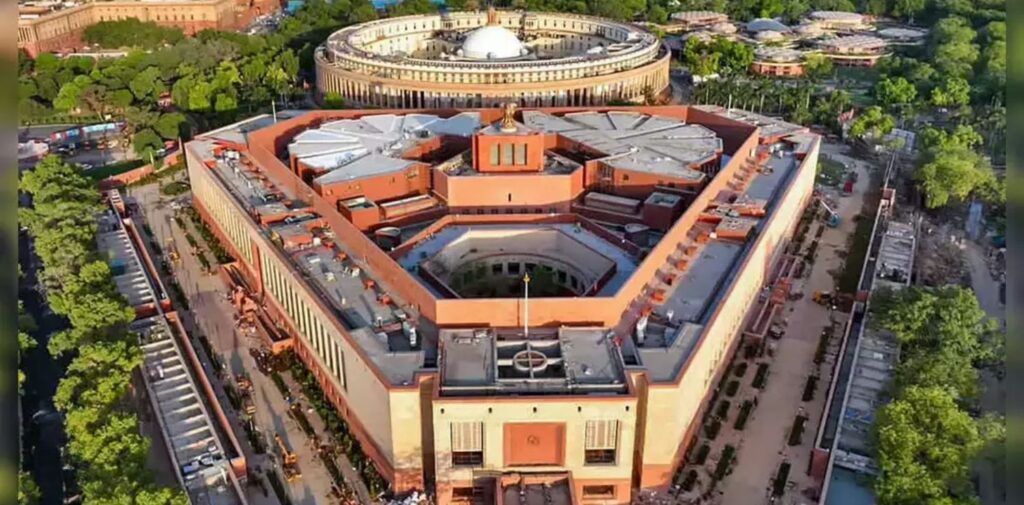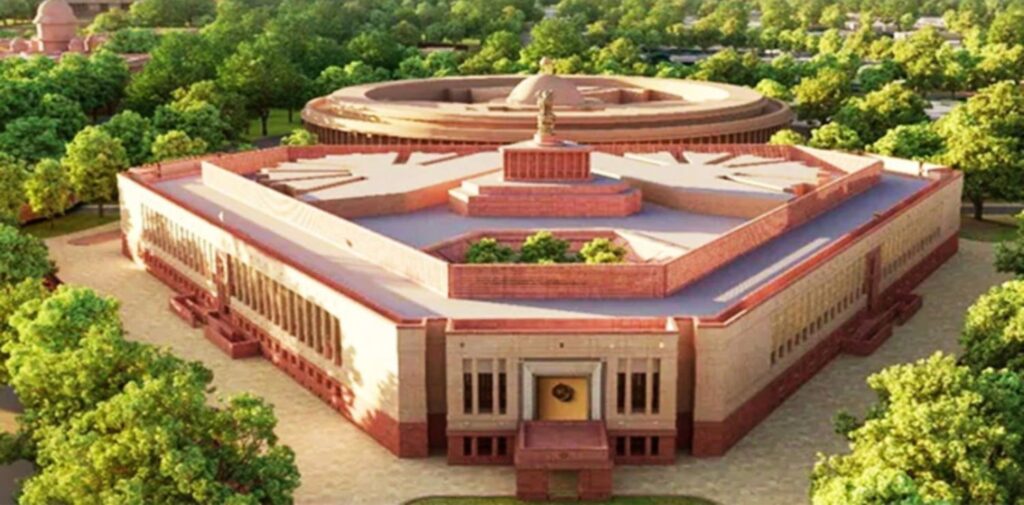India is the world’s largest democracy, and the Indian Parliament plays a very important role in shaping the country’s laws and policies. When you think about the laws that govern your daily life, or the plans that help the country grow, remember that many of them start with discussions and decisions made in Parliament.
The Parliament is where elected representatives of the people come together to debate, decide, and make laws that affect everyone in India. But what exactly does Parliament do? How does it influence the country’s policies and decisions? In this article, we will explore the role of the Indian Parliament in shaping national policies in a simple and easy way.
What is the Indian Parliament?
The Indian Parliament is the supreme legislative body of the country, responsible for making laws and decisions that impact the lives of every citizen. It is made up of two houses:
- The Lok Sabha (House of the People): This is the lower house of Parliament, made up of Members of Parliament (MPs) who are directly elected by the people of India. The Lok Sabha is the most powerful house when it comes to making laws.
- The Rajya Sabha (Council of States): This is the upper house of Parliament, made up of MPs who are elected by the members of state legislative assemblies and by members of the Lok Sabha. The Rajya Sabha ensures that the interests of states and regions are taken into account when laws are made.
Together, these two houses of Parliament make important decisions about the country’s laws, policies, and future plans.

How Does Parliament Influence National Policies?
Parliament has a huge influence on national policies. Policies are decisions made by the government about how to address problems or improve certain areas of the country. These can include policies on education, healthcare, the economy, the environment, and more. Let’s look at the ways in which Parliament helps shape these policies.
Making Laws
The primary job of Parliament is to make laws. Any new law that affects the country must pass through Parliament. Parliament debates, discusses, and votes on proposed laws, and only when the law is approved by both houses, does it become official. For example, if the government wants to pass a law to improve education, it has to bring the proposal to Parliament, where MPs discuss it, make changes, and then vote to decide if it will become a law.
Laws passed by Parliament help the government implement policies in various areas such as education, healthcare, agriculture, and more. The policies created from these laws affect how the government works and how people live.

Debating and Discussing National Issues
One of the most important roles of Parliament is to discuss important national issues. MPs from all over India come together to debate topics like the economy, unemployment, climate change, and national security. These debates allow MPs to voice the concerns of the people they represent and to suggest ideas for solutions.
When MPs debate an issue, they bring forward different viewpoints. This helps ensure that the government considers all perspectives before making a final decision. For example, if there’s a debate about creating a new law to protect the environment, MPs will discuss the importance of preserving nature and how it can be done without harming the economy. This ensures that any decision made is balanced and considers the welfare of all citizens.
Approving the Budget
The budget is a very important policy document in any country. It tells the government how much money it will spend on different areas like healthcare, education, defense, and infrastructure. Parliament plays a huge role in approving the national budget.
Each year, the Finance Minister presents the budget to Parliament, and MPs debate and vote on it. Parliament can suggest changes or cuts to the budget before approving it. By doing this, Parliament helps decide how the government spends money and ensures that the money is used for the country’s development.
For example, if the government wants to spend more on building schools, MPs can discuss and vote to increase the budget for education. If they feel the money is needed elsewhere, they might suggest cuts or changes.
Overseeing the Work of the Government
Even after laws and policies are passed, Parliament also keeps an eye on how the government is working. MPs ask questions and raise issues during Parliament sessions to make sure the government is doing its job properly. This process is called Parliamentary oversight.
For example, if there’s a policy to improve healthcare, Parliament will make sure the government is actually working to build new hospitals, provide medicines, and help those in need. If something is not working, MPs can bring it up in Parliament, and the government will have to explain its actions.
This ensures that the government is accountable to the people and follows the promises it made when implementing new policies.

How Parliament Shapes Different Policies in India
Let’s look at a few key areas where Parliament plays an important role in shaping national policies:
Education Policy
Education is a vital part of any country’s development. Parliament plays a big role in shaping education policies in India. For example, Parliament passed the Right to Education Act (RTE) in 2009, which made education free and compulsory for children between the ages of 6 and 14.
In Parliament, MPs discussed the challenges children face in accessing education and how the government could help. By debating these issues, MPs ensured that laws were made to provide better education for all children, regardless of their background.
Healthcare Policy
Healthcare is another important area where Parliament has a big influence. In India, Parliament has passed several important laws related to healthcare. One of the major ones is the National Health Policy, which aims to provide affordable healthcare to all Indians.
Parliament discusses and passes laws to improve the healthcare system, build more hospitals, and make sure everyone has access to doctors and medicines. MPs bring up issues faced by people in rural areas or those with low incomes, ensuring that the policies are fair and inclusive.
Environmental Policy
With the growing concern about climate change, environmental policies have become a very important topic in Parliament. Laws related to pollution control, forest protection, and renewable energy are discussed and passed in Parliament.
For example, MPs debate how to reduce pollution and promote cleaner energy sources like solar and wind power. By making these decisions, Parliament helps shape policies that protect the environment for future generations.
Economic Policy
India’s economy is constantly changing, and Parliament plays a role in shaping policies that help the economy grow. Decisions about trade, industry, agriculture, and employment are all made through discussions in Parliament.
For example, if the government wants to introduce new policies to support farmers, such as providing better prices for their crops, Parliament will debate these ideas and vote on them. MPs also discuss ways to improve job opportunities, reduce inflation, and support businesses.
Conclusion
The Indian Parliament is at the heart of shaping the country’s national policies. It is where important discussions happen, laws are made, and decisions are taken that affect every citizen. Whether it’s about improving education, healthcare, the economy, or the environment, Parliament plays a key role in making sure the government works for the people.
By debating issues, approving budgets, passing laws, and overseeing the work of the government, Parliament helps ensure that India moves forward on the path of development and progress. In this way, the Indian Parliament is not just a place for making laws—it is the place where the future of the nation is shaped.
Through active participation and responsibility, Parliament ensures that every citizen’s voice is heard, and every part of the country gets a fair chance at growth and success.




